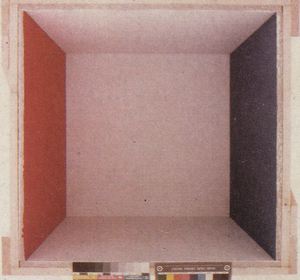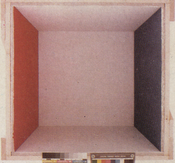Information
- Publication Type: Journal Paper (without talk)
- Workgroup(s)/Project(s): not specified
- Date: June 2006
- ISSN: 0167-7055
- Journal: Computer Graphics Forum
- Number: 2
- Volume: 25
- Pages: 237 – 255
- Keywords: visual comparisons, experimental validation, test scenes, physically based rendering, image quality metrics
Abstract
Within computer graphics, the field of predictive rendering is concerned with those methods of image synthesis which yield results that do not only look real, but are also radiometrically correct renditions of nature, i.e.which are accurate predictions of what a real scene would look like under given lighting conditions.In order to guarantee the correctness of the results obtained by such techniques, three stages of such a rendering system have to be verified with particular care: the light reflection models, the light transport simulation and the perceptually based calculations used at display time.
In this report, we will concentrate on the state of the art with respect to the second step in this chain. Various approaches for experimental verification of the implementation of a physically based rendering system have been proposed so far. However, the problem of proving that the results are correct is not fully solved yet, and no standardized methodology is available. We give an overview of existing literature, discuss the strengths and weaknesses of the described methods and illustrate the unsolved problems. We also briefly discuss the related issue of image quality metrics.
Additional Files and Images
Weblinks
No further information available.BibTeX
@article{ulbricht-2006-VOP,
title = "Verification of Physically Based Rendering Algorithms",
author = "Christiane Ulbricht and Alexander Wilkie and Werner
Purgathofer",
year = "2006",
abstract = "Within computer graphics, the field of predictive rendering
is concerned with those methods of image synthesis which
yield results that do not only look real, but are also
radiometrically correct renditions of nature, i.e.which are
accurate predictions of what a real scene would look like
under given lighting conditions. In order to guarantee the
correctness of the results obtained by such techniques,
three stages of such a rendering system have to be verified
with particular care: the light reflection models, the light
transport simulation and the perceptually based calculations
used at display time. In this report, we will concentrate
on the state of the art with respect to the second step in
this chain. Various approaches for experimental verification
of the implementation of a physically based rendering system
have been proposed so far. However, the problem of proving
that the results are correct is not fully solved yet, and no
standardized methodology is available. We give an overview
of existing literature, discuss the strengths and weaknesses
of the described methods and illustrate the unsolved
problems. We also briefly discuss the related issue of image
quality metrics. ",
month = jun,
issn = "0167-7055",
journal = "Computer Graphics Forum",
number = "2",
volume = "25",
pages = "237--255",
keywords = "visual comparisons, experimental validation, test scenes,
physically based rendering, image quality metrics",
URL = "https://www.cg.tuwien.ac.at/research/publications/2006/ulbricht-2006-VOP/",
}


